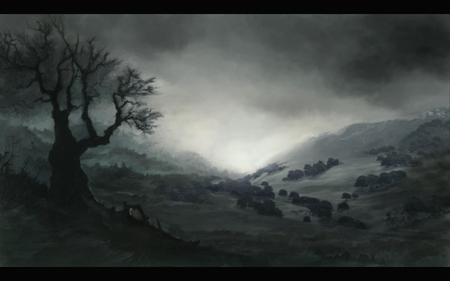
dreary [dreer-ee] SynonymsExamplesWord Origin adjective, drear·i·er, drear·i·est.
- causing sadness or gloom.
- dull; boring.
- sorrowful; sad.
Origin of dreary before 900; Middle English drery, Old English drēorig gory, cruel, sad, equivalent to drēor gore + -ig -y1; akin to Old Norse dreyrigr bloody, German traurig sadRelated formsdrear·i·ly, adverbdrear·i·ness, noundrear·i·some, adjectiveSynonyms for dreary 1. gloomy, dismal, drear, cheerless, depressing, comfortless. 2. tedious, monotonous, wearisome, tiresome.Antonyms for dreary 1. cheerful. 2. interesting. Examples from the Web for drearily Historical Examples of drearily
“Sending me to prison won’t stop it,” Mary Turner said, drearily.
Marvin Dana
When Davis knocked at the door she said drearily, “Come in.”
Amelia Edith Huddleston Barr
“Maybe I’d be better able to say it if I knew what you was talkin’ about, Sam,” he observed, drearily.
Joseph C. Lincoln
“It was your thoughts I was following out,” said she, drearily.
Davenport Dunn, Volume 2 (of 2)
Charles James Lever
“Tom tried to force people to let him work,” the girl went on drearily.
Robert Ames Bennet
British Dictionary definitions for drearily dreary adjective drearier or dreariest
- sad or dull; dismal
- wearying; boring
- archaic miserable
Also (literary): drear Derived Formsdrearily, adverbdreariness, nounWord Origin for dreary Old English drēorig gory; related to Old High German trūreg sad Word Origin and History for drearily dreary adj.
Old English dreorig “sad, sorrowful,” originally “cruel, bloody, blood-stained,” from dreor “gore, blood,” from (ge)dreosan (past participle droren) “fall, decline, fail,” from West Germanic *dreuzas (cf. Old Norse dreyrigr “gory, bloody,” and more remotely, German traurig “sad, sorrowful”), from PIE root *dhreu- “to fall, flow, drip, droop” (see drip (v.)).
The word has lost its original sense of “dripping blood.” Sense of “dismal, gloomy” first recorded 1667 in “Paradise Lost,” but Old English had a related verb drysmian “become gloomy.”
 Liberal Dictionary English Dictionary
Liberal Dictionary English Dictionary